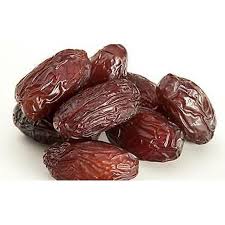
Food Safety of Dates in Malaysia: Exploring Pembekal Kurma
Introduction
Dates are a cherished fruit in Malaysia, known for their rich flavor and nutritional benefits. To ensure that consumers can enjoy high-quality and safe dates, Malaysia has implemented stringent measures to maintain the quality and food safety of dates produced in the country. In this blog post, we will explore the role of Pembekal Kurma (date suppliers) and the various measures undertaken to ensure the quality and food safety of dates in Malaysia.
1. Understanding Pembekal Kurma
Pembekal Kurma refers to the suppliers and distributors involved in the date industry in Malaysia. These entities play a crucial role in ensuring the availability of fresh and quality dates to consumers. Pembekal Kurma source dates from local farms or import them from other countries, ensuring a consistent supply of dates throughout the year.
2. Implementation of Quality Assurance Measures
2.1 Farming Practices
Malaysia emphasizes the adoption of good agricultural practices (GAP) in date farming. Farmers are encouraged to follow sustainable farming methods, including proper land preparation, irrigation techniques, pest control, and responsible use of fertilizers. These practices help maintain the quality and safety of dates from the early stages of cultivation.
2.2 Harvesting and Post-Harvest Handling
Dates are harvested at the optimal ripeness to ensure maximum flavor and nutritional value. Strict guidelines are followed during harvesting to minimize damage to the fruit. After harvest, proper post-harvest handling techniques are employed, including cleaning, sorting, and packaging, to maintain the quality and extend the shelf life of dates.
3. Certifications and Standards
3.1 Malaysian Good Agricultural Practices (MyGAP)
The Malaysian Good Agricultural Practices (MyGAP) certification program ensures that date farms adhere to specific standards and practices that guarantee the safety and quality of agricultural produce, including dates. MyGAP certification verifies that the dates have been produced under controlled conditions, ensuring traceability and accountability throughout the supply chain.
3.2 Hazard Analysis and Critical Control Points (HACCP)
The Hazard Analysis and Critical Control Points (HACCP) system is widely implemented in the Malaysian date industry. HACCP focuses on identifying and controlling potential hazards during the production process, ensuring that dates are safe for consumption. This systematic approach helps prevent, reduce, or eliminate risks associated with food safety.
4. Regulatory Oversight and Monitoring
Malaysia has regulatory bodies, such as the Ministry of Agriculture and Food Safety and Quality Division, responsible for monitoring and enforcing food safety regulations. These agencies conduct regular inspections, audits, and sampling to ensure that date producers, suppliers, and distributors comply with food safety standards. Any non-compliance may result in penalties or corrective actions to maintain public health and safety.
Conclusion
Malaysia places great importance on ensuring the quality and food safety of dates produced in the country. Through the role of dates suppliers and the implementation of comprehensive measures, certifications, and standards such as MyGAP and HACCP, Malaysia maintains the highest standards in the date industry. These efforts ensure that consumers can enjoy dates that are not only delicious but also safe for consumption.
Key Highlights:
Dates suppliers play a vital role in the date industry by supplying fresh and quality dates to consumers.
Malaysia implements strict measures to ensure the quality and food safety of dates.
Good agricultural practices, proper harvesting, and post-harvest handling contribute to maintaining date quality.
Certifications like MyGAP and HACCP verify adherence to standards and ensure food safety.
Regulatory bodies monitor and enforce food safety regulations in the Malaysian date industry.